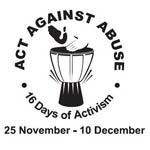
Top stories






More news


Marketing & Media
Ads are coming to AI. Does that really have to be such a bad thing?














The media attention given the notorious case of South Africa's "Facebook rapist" may have finally woken people up to the possibility of social networks as dangerous places. The case also showed that the wheels of justice can move swiftly when they want to. Perhaps the notoriety of the case itself, and the resulting public eye, stimulated the quick actions of the justice system.
This is often not usually so
This is often not usually so. During 16 Days of Activism, many survivors of sexual and domestic violence will voice that most gender violence receives hardly a passing glance.
Thabo Bester, otherwise known as the Facebook rapist, was relatively unknown in the public domain until stories began to emerge in newspapers and on television about a man in his twenties, operating behind the guise of a modeling scout on Facebook, who had been conning young women of their possessions. The robberies escalated to sexual assault and even alleged murder. After a brief cat-and-mouse chase, police finally arrested him on 21 September 2011 in Alberton, in Johannesburg.
The courts convicted Bester on two counts of rape and two counts of robbery with aggravating circumstances, sentencing him to 50 years in prison on 14 October. Although he plead guilty and faces further trials on charges including rape and murder, it is remarkable how efficient the South African criminal justice system can be, don't you think?
Denial of justice for victims
A 2010 study led by the Medical Research Council (MRC) found that in Gauteng province, home to South Africa's most populous city of Johannesburg, more than 37% of men said they had raped a woman. Nearly 7% of the 487 men surveyed said they had participated in a gang rape. Yet, a Human Rights Watch country report in the same year states that, "arrest and conviction rates of rape perpetrators are extremely low." The denial of justice for victims likely contributes to the normalisation of violence against women in SA.
Another MRC study on sexual violence in 2005 found that only one out of every nine rape survivors report the attack to the police. Furthermore, a 2007 report by People Opposing Women Abuse (POWA) found only 7% of those one-in-nine-reported rape cases resulted in successful convictions in court. Moreover, of that 7%, only 5% reach the high court for proper sentencing. These statistics certainly present a very bleak picture of the justice system.
While sexual assaults have been a worrying trend in SA long before online social networking took root in society, it's apparent that there's a need to have a close look at these new forms of potential abuse.
"Take Back the Tech" campaign
By including cybercrimes in the national crime statistics report, society could be provided with a gauge to assess the prevalence of this particular form of crime, and whether it is increasing or not. In terms of addressing cybercrime, the "Take Back the Tech" campaign (www.takebackthetech.net) is an excellent example of civil society taking up the initiative to educate women about protecting themselves from cyber violence.
However, until all stakeholders do more to inform and educate users (especially women and children) about the dangers of social networks and the Internet, the World Wide Web will continue to be exploited by individuals aiming to attack, victimise and endanger others. Media remains essential to the public dissemination of accurate and well-researched information about cybercrime.
However, it is equally important for the media to report on all kinds of violence against women in a manner that challenges gender stereotypes, instead of promoting them, and includes more diverse voices. The Gender and Media Progress Study conducted by Gender Links in 2010 found that women feature less often than men as sources when reporting gender-based violence (GBV), even though women are more intimately affected.
Only 3% of total number of stories
Furthermore, survivors of GBV constitute a low proportion (15%) of all sources on the topic. Despite the high incidence of GBV in South Africa, stories mentioning GBV account for only 3% of the total number of stories.
Better reporting on GBV requires more than just greater quantity; it also requires a move away from sensationalism and simply reporting "hard news" to adding more depth to stories. For example, media and journalists could greatly enhance their stories by including the voices of those affected, information on response and support structures, and activists opinions.
Although it is not necessarily the duty of the media to influence matters of the court, it would certainly be naïve to underestimate its critical role in raising public awareness about GBV.
Cybercrimes will almost certainly continue to feature in this fast-evolving information and digital age, and while the coverage of the so-called Facebook rapist undoubtedly raised awareness on the problem, more in-depth and thoughtful reporting on the wider issues is needed, as it is with all forms of GBV.
For more:
This article is part of the Gender Links (GL) Opinion and Commentary Service that offers fresh views on everyday news. Gender Links (www.genderlinks.org.za) is a southern African organisation committed to promoting gender equality in and through the media. For more, email az.gro.sknilredneg@rotide and follow @GenderLinks on Twitter.
Go to: http://www.genderlinks.org.za